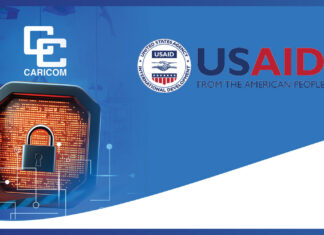A series of PSAs launched by PAHO for the International Day of Action for Women´s Health promotes prenatal care and saving lives.
In recognition of the International Day of Action for Women´s Health (May 28), the Pan American Health Organization (PAHO) is launching a series of public service announcements (PSAs) with Mexican singer Lila Downs to promote prenatal care and prevent maternal deaths.
“Today and every day in the Americas, 16 women will die because of complications related to pregnancy or childbirth, and postpartum hemorrhage or bleeding is one of the main causes,” said Lila Downs in the PSA, referring to a preventable but lethal problem that primarily affects women in vulnerable social situations or remote areas of the Americas. “If you´re pregnant, visit your health care provider at least four times during your pregnancy,” Downs advises. “Together, we can bring maternal deaths in the Americas down to zero.”
The PSAs, available on YouTube and Vimeo in Spanish and English, are part of PAHO´s #ZeroMaternalDeaths campaign, which aims to mobilize the region of the Americas to end preventable maternal deaths. In the Americas, one in five maternal deaths is due to obstetric hemorrhage.
“Lila Downs´ support will help us reach more women, their partners and family members to raise awareness of the importance of prenatal care for the well-being of mothers and their babies,” said Andres de Francisco, Director of PAHO´s Family, Gender and Life Course Department. “We want women to have access to quality periodic medical checkups during all three trimesters, as well as when they´re not pregnant, so that health professionals can anticipate, detect and successfully treat possible complications that put mothers´ and babies´ lives at risk.”
Downs, a multiple Grammy-award winner, also appears in another PAHO PSA geared toward health workers who care for pregnant women. That message makes recommendations on preventing maternal mortality, highlighting the need to provide pregnant women with timely and appropriate care, to respect their world vision and culture, to inform them about the symptoms and warning signs of hemorrhage, to avoid unnecessary Caesarian sections and to
help them prevent unwanted pregnancies.
Countries in the Americas have reduced maternal mortality considerably since 1990, yet 5,500 women still die every year from complications of pregnancy and childbirth. The majority of these deaths could be avoided by expanding access to timely and quality care and addressing economic, geographic and cultural barriers.
In the Americas, more than 90 percent of births take place in health care institutions, and nearly 90 percent of all pregnant women attend at least four prenatal checkups, the minimum recommended by WHO. However, among adolescents and young women aged 15 to 24 years, complications related to pregnancy, childbirth and immediately following birth remain among the top four causes of death in the region.
The Zero Maternal Deaths by Hemorrhage project started in 2014 in Bolivia, Guatemala, the Dominican Republic, Haiti and Peru, countries where rates of maternal death from hemorrhage are among the highest in the continent. The initiative focuses on promoting prenatal care and humanized birth, improving quality of care through training on obstetric emergencies, facilitating the transfer of patients with complications, and ensuring the availability of safe blood. A number of other countries have also joined or expressed interest in joining the project, including Brazil, Ecuador, Honduras, Mexico and Paraguay.
PAHO, which serves as the Regional Office of the Americas for the World Health Organization, is working with its member countries on the creation of a new women´s health agenda, with the goal of identifying women’s priority health needs and ensuring comprehensive care.





